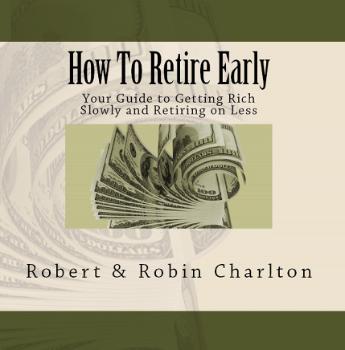

Early Retirement
| Good News: Stocks Are Down! |
When the headlines are screaming “Dow Plummets!” and “S&P 500 Hits New
Lows!” you should be smiling and thinking to yourself, “Blowout Sale on
Stocks! Limited Time Only!”
Until we retired, we always welcomed bad news in the markets. Why? Because
bad news is actually good news for beginning and middle-years investors. Bad
news spells opportunity.
This may seem counterintuitive but it makes perfect sense once you think
about it. If you had bought stocks at the depths of the Great Recession in
March 2009, for instance, when the Dow stood at around 6,500, you would
have been participating in an amazing 50% off sale. If you could buy the latest
iPhone for half off, wouldn’t you think it was a great deal? And yet we don’t
always bring that same logic to our investments.
As a beginning investor, your time horizon is so long that you should be
excited about bad financial news. It means you get to buy more shares for less
money. If stock prices stayed depressed for another decade, that would be
fine from your standpoint. Bear markets are like extended sales at your
favorite store: scoop up as many deals as you can while the getting is good.
As early retirees in the making, we did our best investing during the bear
market of 2000-2002 when the S&P 500 was down -9%, -12%, and -22%. We
kept on buying throughout, knowing that in the long run our strategy of
consistent investing would bear out. From 2003 to 2006 the S&P 500 gained
29%, 11%, 5%, and 16%. Our nest egg grew rapidly under these conditions.
While it might be psychologically challenging to watch your investments soar
and plummet repeatedly, all that really matters is where your investments
stand WHEN YOU CASH THEM OUT. What you really want is for the stock
market to go on a major tear in the last five years of your investment plan -- or
shortly after you retire. Then all those shares you purchased at low, low prices
are going to bear remarkable fruit.
The takeaway lesson is this: Keep investing – or invest more – when the
markets are down and you'll reap big rewards later on. Keep reminding
yourself the markets have to go up eventually. If you have a 15- to 20-year
time horizon, you’re almost certain to be proven right.
Lows!” you should be smiling and thinking to yourself, “Blowout Sale on
Stocks! Limited Time Only!”
Until we retired, we always welcomed bad news in the markets. Why? Because
bad news is actually good news for beginning and middle-years investors. Bad
news spells opportunity.
This may seem counterintuitive but it makes perfect sense once you think
about it. If you had bought stocks at the depths of the Great Recession in
March 2009, for instance, when the Dow stood at around 6,500, you would
have been participating in an amazing 50% off sale. If you could buy the latest
iPhone for half off, wouldn’t you think it was a great deal? And yet we don’t
always bring that same logic to our investments.
As a beginning investor, your time horizon is so long that you should be
excited about bad financial news. It means you get to buy more shares for less
money. If stock prices stayed depressed for another decade, that would be
fine from your standpoint. Bear markets are like extended sales at your
favorite store: scoop up as many deals as you can while the getting is good.
As early retirees in the making, we did our best investing during the bear
market of 2000-2002 when the S&P 500 was down -9%, -12%, and -22%. We
kept on buying throughout, knowing that in the long run our strategy of
consistent investing would bear out. From 2003 to 2006 the S&P 500 gained
29%, 11%, 5%, and 16%. Our nest egg grew rapidly under these conditions.
While it might be psychologically challenging to watch your investments soar
and plummet repeatedly, all that really matters is where your investments
stand WHEN YOU CASH THEM OUT. What you really want is for the stock
market to go on a major tear in the last five years of your investment plan -- or
shortly after you retire. Then all those shares you purchased at low, low prices
are going to bear remarkable fruit.
The takeaway lesson is this: Keep investing – or invest more – when the
markets are down and you'll reap big rewards later on. Keep reminding
yourself the markets have to go up eventually. If you have a 15- to 20-year
time horizon, you’re almost certain to be proven right.
